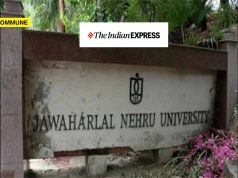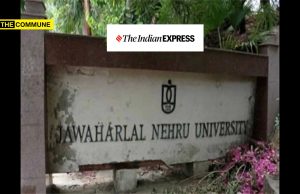
The indictment of Gautam Adani in a US court over a bribery scheme involving $250 million in payouts to Indian state officials sent shockwaves across India. Tamil Nadu, governed by the DMK, has found itself at the centre of the controversy, with questions mounting over its long-term power purchase agreements and alleged involvement in the Adani bribery scandal.
Bribery Allegations And SECI Power Agreements
Between July 2021 and February 2022, state-run electricity distribution companies (DISCOMs) in Tamil Nadu, Andhra Pradesh, Odisha, Chhattisgarh, Jammu & Kashmir, and others entered into Power Sale Agreements (PSAs) with the Solar Energy Corporation of India (SECI). Tamil Nadu Generation and Distribution Corporation Limited (TANGEDCO) was among these entities, allegedly entering into a PSA under the Manufacturing Linked Project.
The indictment details how bribes, calculated at ₹25 lakh per megawatt, were paid or promised to state officials to secure these agreements. In Andhra Pradesh, where the largest deal of 7,000 MW was struck, the total bribe amounted to ₹1,750 crore (more than $200 million). Tamil Nadu’s agreement, though not quantified in the indictment, has also come under scrutiny.
Tamil Nadu’s 25-Year Power Purchase Agreement
The DMK government in Tamil Nadu signed a 25-year power purchase agreement with SECI in May 2024. Critics question why such a long-term commitment was made when the government’s remaining tenure is just two years.
Further complicating matters is the timeline of the bribery scheme. According to the indictment, state governments allegedly rejected SECI’s initial Letters of Award due to high tariffs, but this resistance was eventually overcome through massive payouts.
Central Government’s Rejection
SECI’s tentative acceptance of power tariffs from Adani Green and Azure hit a roadblock when state governments refused to accept the terms, citing unfeasible economics. However, the indictment alleges that Gautam Adani and Sagar Adani personally intervened, offering bribes to state officials to move the agreements forward. This ensured SECI could finalize contracts with the states, including Tamil Nadu.
Political Accusations And DMK’s Role
The BJP has leveraged the indictment to target the DMK government, raising questions about its involvement. Specifically, Chief Minister M.K. Stalin’s alleged meeting with Gautam Adani at his Chittaranjan Road residence has been scrutinised. Critics demand clarity on whether the meeting pertained to bribery, investment proposals, or money laundering.
Additionally, opposition leaders have called for a detailed explanation from Stalin on the following:
- The terms of Tamil Nadu’s power purchase agreement with SECI.
- The role of TANGEDCO officials in facilitating this deal.
- The alleged bribes received by Tamil Nadu officials during the 2021–2022 period.
Documents And Evidence
The indictment includes contemporaneous records maintained by Adani Green, listing specific states, corresponding power purchase amounts, and associated bribe payouts. Tamil Nadu is explicitly named in these records, along with Odisha, Chhattisgarh, Andhra Pradesh, and others.
UNI earlier reported about Gautam Adani’s meeting with Stalin. This meeting raises suspicions of deeper involvement, fueling the demand for an independent investigation.
The fallout from the indictment isn’t limited to Tamil Nadu. Other states governed by the Congress (Chhattisgarh), Biju Janata Dal (Odisha), and YSR Congress (Andhra Pradesh) are also implicated. However, Tamil Nadu’s position as a DMK-governed state, coupled with its long-term PPA in 2024, has intensified the political scrutiny.
Amidst the uproar, demands for transparency have grown louder. Critics argue that the DMK government must:
- Disclose the specifics of its PSA with SECI, including terms, tariffs, and decision-making processes.
- Address allegations of bribes promised or paid during the power purchase deal.
The BJP has amplified these calls through a targeted social media campaign, labeling the DMK government as complicit in Adani’s bribery scheme.
The Adani bribery scandal has cast a shadow over DMK governance, raising questions about their role in the unfolding drama. As demands for accountability mount, the DMK leadership faces pressure to explain transparently its dealings with SECI and Adani. Whether these allegations will lead to legal or political consequences remains to be seen.
Subscribe to our Telegram, WhatsApp, and Instagram channels and get the best stories of the day delivered to you personally.




